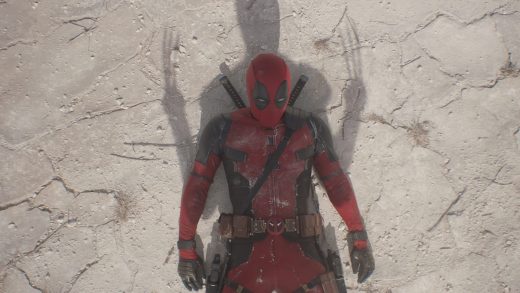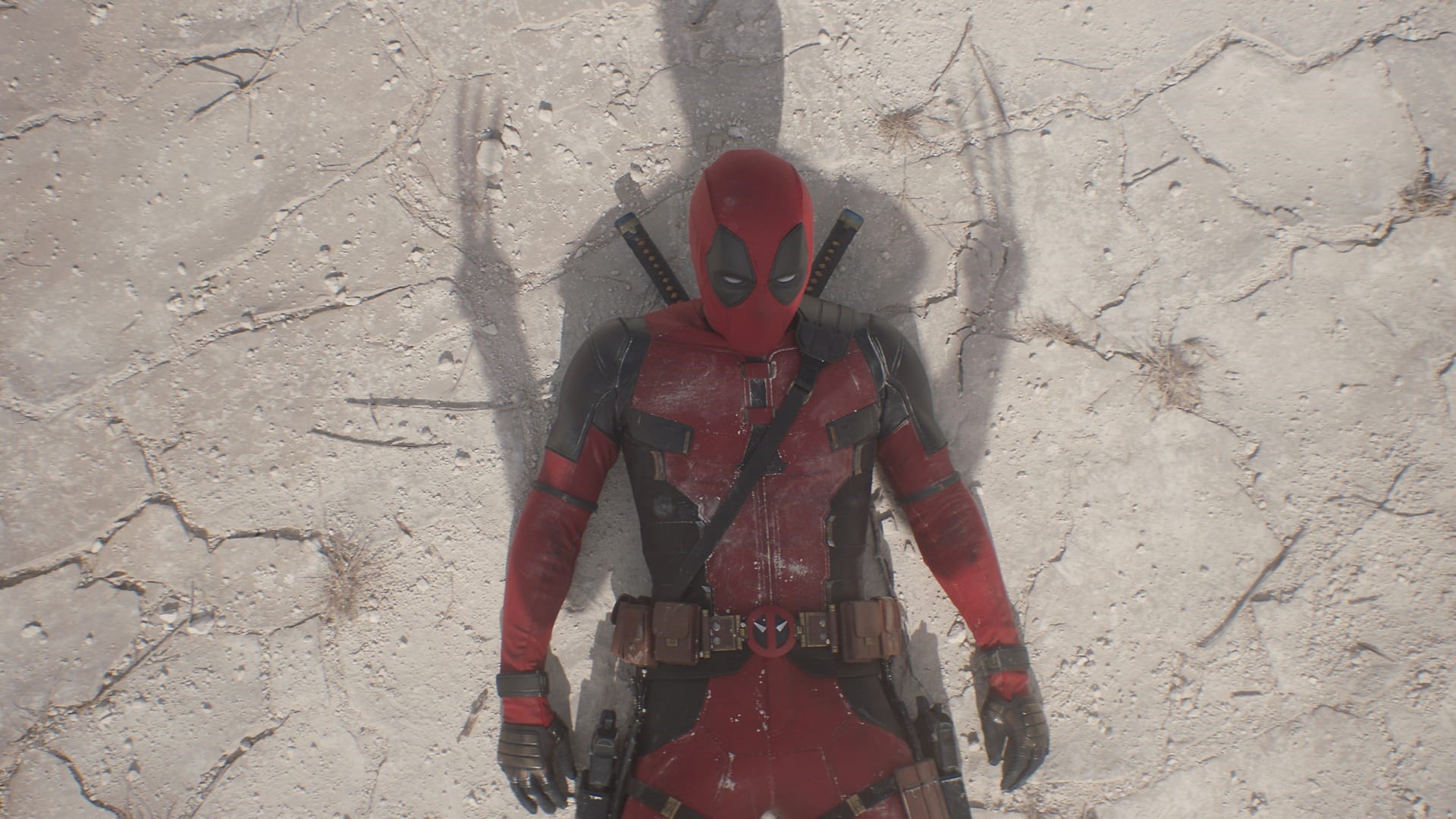Disney’s unexpected strategy for turning a movie into a global phenomenon
Disney’s unexpected strategy for turning a movie into a global phenomenon
Disney’s chief brand officer and senior vice-president of marketing explain how they coordinated one of the biggest rollouts ever for ‘Deadpool & Wolverine.’
BY Jeff Beer
Deadpool & Wolverine is the undisputed champ of the summer blockbuster movie season. Its $1.2 billion in global box office is a direct result of a massive, worldwide marketing campaign that blitzed across pop culture for months. It garnered billions of media impressions in theaters, online, TV, and high-profile brand partnerships.
But according to Disney’s chief brand officer, Asad Ayaz, one of the biggest lessons the entertainment behemoth learned from this experience was actually the value of restraint.
“We didn’t show very much of the actual film at all,” says Ayaz. “The elements we did show were at the tail end (of the campaign). There was a lot of strategy and thought that went into the story of this campaign, the reveals, and just holding back in every way possible, on the big idea of these two characters coming together, and obviously, Deadpool coming into the MCU.”
Global domination
It’s tough to reconcile the word restraint with the sheer scale of the Disney marketing machine. For Deadpool & Wolverine, it all began with the first teaser trailer airing during the Super Bowl in February, which attracted 365 million views in 24 hours—the most-viewed movie trailer of all-time. Next up in May, was an in-theater, “silence your phone” PSA starring Ryan Reynolds and Hugh Jackman, in character. Soon after, a collectible popcorn bucket dropped, not-so-subtly calling to mind another viral popcorn bucket.
There were media integrations across the premiere episode of ABC’s The Bachelorette; Bravo’s The Real Housewives of OC, and a custom video about actual wolverines tied to National Geographic’s Underdogs.
Meanwhile, the film’s stars went on a 10-city tour across four continents, marking Marvel’s return to China for the first time since Endgame. Reynolds, Jackman, and director Shawn Levy, pulled a stunt with GQ China on the banks of The Bund in Shanghai involving a 30×12-foot inflatable Deadpool. They then hit Seoul for Waterbomb Festival, Korea’s largest summer music festival. In Berlin, they went to UEFA Euros quarter-final soccer match, where Deadpool stormed the pitch at the end of the game in front of its 100M+ audience. Of course, they did all the late-night stops but also added cult favorite YouTube series Chicken Shop Date and Hot Ones.
Brand partnerships saw the Deadpool and Wolverine characters shilling for everything from Xbox and Heineken, to Adidas, Aviation Gin (natch), Old Spice, DiGiornio pizzas, and more.
“The scale of this campaign was among the biggest that we have done here at Disney, certainly in many years,” says senior vice president of marketing Ryan Stankevich. “It really was a pretty well-orchestrated global effort to make sure that we were building this to be the event that we knew it could be.”
Strategic targeting
The notion of a whirlwind world tour for a film like this isn’t groundbreaking, but despite its scale, the destinations were incredibly strategic. Each stop was purposely selected to provide a boost in regions and with audiences that were less familiar with the Deadpool character.
Korea is a major Marvel market, but less familiar with Deadpool. So there’s Reynolds with K-pop band Stray Kids video, and the two stars getting soaked at the Waterbomb Festival. In some circles, Deadpool is considered a favorite among bros who dig graphic violence and dick jokes. Hence, the Bachelorette and Real Housewives partnership.
“This aggressive, ambitious global tour was really driven by, what do our box office targets look like? How has the Deadpool franchise performed? Where has it been stronger? Where does it need more help versus other MCU films?” says Ayaz. “We knew there was an opportunity to grow Deadpool as a character. So all kinds of interesting, broad activations were very carefully developed by the team, and having Ryan and Hugh on board is what really amplified everything around the world.”
One thing that this year’s film has clearly demonstrated, through the sheer amount of content and promotional work from Reynolds and Jackman, is the power of having stars willing to become an integral part of the marketing efforts.
“You don’t have that on every single film or show you work on, but when you do have it, it’s fantastic,” says Ayaz. “Ryan [Stankevich] and I are working on Agatha All Along right now, and Kathryn Hahn and the cast have been great at doing two things: Be clever and be partners to us on the campaign. When you have that on a project, it makes a huge difference.”
Trickle-down effect
Stankevich says one major challenge for a project of this size was the relatively short time they had to build out such a comprehensive marketing campaign. “We were still shooting the movie in December of 2023 and planning the campaign simultaneously with that,” she says. “So we’re already looking at trailer cuts as they were shooting the movie, knowing that we needed to launch the film in July of this year. That was pretty unique for us.”
The key for Stankevich and her team was to have a good deal of discipline in terms of what parts of the film they were willing to reveal, and how they would do it. The approach was to let commercial content build most of the hype, instead of film footage. That was only released at a trickle for months, only revealing more as the July premiere got close. For example, the inclusion of the X23 character (previously introduced by Fox in 2017’s Logan) was kept quiet until the last trailer dropped a week before the movie’s premiere.
“X23 was actually a big discussion that Ryan and I and our creative team had with the filmmakers because it had a little bit different tone,” says Ayaz. “It was more emotional, being from Logan, and that was very deliberate.”
Another example is the cellphone PSA that ran ahead of Dune 2. Stankevich says they made a very clear choice to not post it on social media or YouTube, but just let it catch on in theaters.
“It had high production values, it was so funny, and I think traditional wisdom would be to put that on social media once it goes into theaters,” she says. “But we didn’t do that. We wanted fans to discover it and share it as a discovery. And so I think it took on a life of its own because people found it themselves in the theater and shared it with their friends without it feeling like an overt piece of marketing.”
Every film is its own brand
One of the challenges for Marvel in recent years has been universal fatigue. Put another way, audiences felt like they had to do homework to understand any new release. That impression is a brand challenge that Ayaz insists is being addressed. Starting with Deadpool & Wolverine being marketed as an R-rated film true to its characters.
Ayaz says there is a very bespoke, strategic game plan to every single campaign based on the film. That plan answers two key questions: What’s the narrative of the campaign? What are the assets and best aspects to work with?”
For the marketing department, each movie is a unique brand, and the key to its success for Ayaz is being true to the genre and the essence of the characters. He cites the upcoming Captain America: Brave New World.
“If you’ve seen our first trailer, it’s a very grounded political thriller,” says Ayaz. “It couldn’t be more different [to Deadpool] in every way. When you see our work for Fantastic Four or Thunderbolts, they’re going to feel very unique. And while, yes, there is a connection between these characters in the same universe, it is creatively very unique, and feels like you could come into any one of these movies.”
ABOUT THE AUTHOR
(17)



